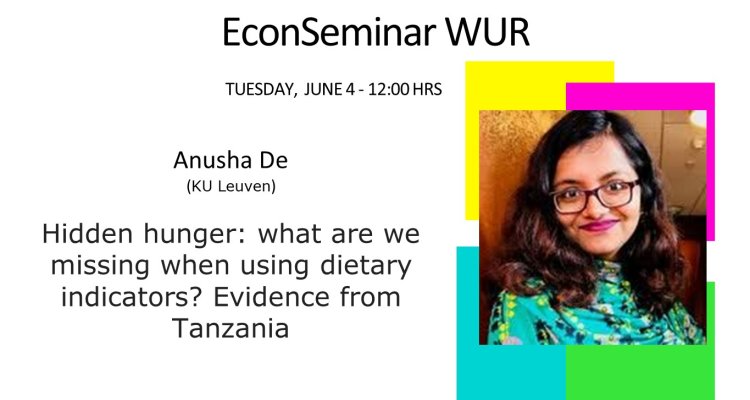
Seminar
Anusha De (KU Leuven): “Hidden hunger: what are we missing when using dietary indicators? Evidence from Tanzania”
Tuesday June 4, Anusha De (KU Leuven) will give a seminar entitled “Hidden hunger: what are we missing when using dietary indicators? Evidence from Tanzania”
The seminar will take place in room B0082 between 12:00-13:00.
Lunch will be provided.
Abstract:
With a surge of studies emphasizing increases in both undernourishment and overconsumption in sub-Saharan Africa, as well as associated adverse health outcomes, how we measure food and nutrition security is paramount. Indicators such as the household dietary diversity score (HDDS) are often used to inform on food security, with many papers equating results from these indicators to dietary quality, healthy diets, and nutrition security. Although useful tools, we cannot forget the shortcomings of these indicators. Using detailed food diaries collected for 1506 households over 14-days in Tanzania, we compare findings from the HDDS to consumption of calories, macro- and micronutrients relative to dietary reference intakes. Our findings show that (1) households with a relatively good HDDS under-consume key micronutrients such as folate, vitamin E and calcium, and overconsume potentially harmful substances such as saturated fats and sugar, (2) households consume more than double the amount of food groups in 14-days than they do in 1 day, and (3) excluding food-away-from-home underestimates dietary diversity and nutrient consumption. Further, we compare the Minimum Dietary Diversity for Women (MDD-W), the Food Consumption Score (FCS), and the Global Dietary Quality Index (GDQS). Our findings call for a more nuanced discussion of results obtained using aggregate dietary indicators, especially concerning policy implications and recommendations.